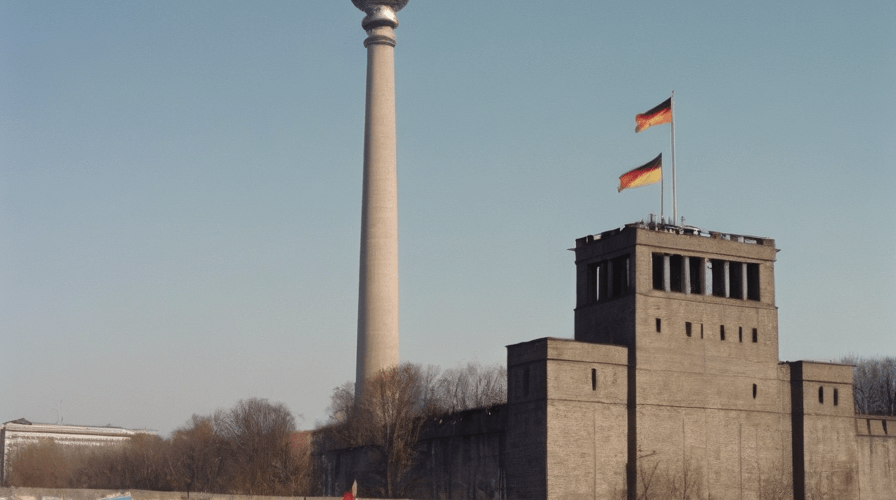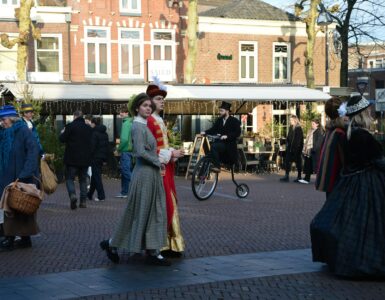On November 9, 1989, the world watched in awe as thousands of East Germans crossed and climbed onto the Berlin Wall, joined by West Germans on the other side. This momentous event marked the fall of the Berlin Wall, a powerful symbol of the Cold War that had divided not just a city, but the entire world. The collapse of this concrete barrier signaled the beginning of the end of the Cold War, the reunification of Germany, and a new era in global politics.
The Berlin Wall, constructed in 1961, was built by the German Democratic Republic (GDR) or East Germany to prevent mass defections to the West. It became the most visible embodiment of the Iron Curtain, separating the communist Eastern Bloc from the capitalist West. For 28 years, the wall stood as a 155-kilometer concrete scar through the heart of Berlin, topped with barbed wire and guarded by armed soldiers with orders to shoot anyone attempting to cross.
The events leading to the fall of the Wall were set in motion by a series of reforms in the Soviet Union under Mikhail Gorbachev’s policies of perestroika (restructuring) and glasnost (openness). These reforms sparked a wave of revolutions across Eastern Europe in 1989, weakening the grip of communist regimes.
In East Germany, protests had been building throughout 1989, with citizens demanding political reform and the right to travel freely. The country’s long-time leader, Erich Honecker, resigned in October, replaced by the more moderate Egon Krenz. Under mounting pressure, the East German government decided to allow refugees to exit directly through crossing points between East and West Germany, including East Berlin.
On the evening of November 9, during a press conference, East German politburo member Günter Schabowski was handed a note about the new travel regulations. Schabowski, apparently unprepared for the question, stated that the new rules would take effect “immediately, without delay.” This statement, broadcast on live television, was interpreted by East Germans as a declaration that the border was now open.
Thousands of East Berliners flocked to the crossing points, demanding to be let through. Overwhelmed and without clear orders, the border guards eventually yielded, allowing people to pass. As news spread, crowds gathered on both sides of the wall. People began chipping away at the wall with hammers and chisels, in a spontaneous act that would come to be known as the “Mauerspechte” (wall woodpeckers).
The scenes of jubilation at the Berlin Wall were broadcast around the world. Families separated for decades reunited, and strangers embraced in the streets. The wall, once a symbol of division and oppression, became the site of a massive, impromptu celebration of freedom and unity.
The fall of the Berlin Wall had immediate and far-reaching consequences. Within a year, Germany was reunified, with official ceremonies held on October 3, 1990. The event accelerated the collapse of communist regimes across Eastern Europe. By 1991, the Soviet Union itself had dissolved, marking the end of the Cold War.
The rapid and peaceful nature of these changes was remarkable and unexpected. Many had feared that any attempt to alter the status quo in divided Germany could lead to violent conflict, possibly even triggering a nuclear war between the superpowers. Instead, the transformation occurred with minimal bloodshed, a testament to the power of peaceful protest and the desire for freedom.
The fall of the Berlin Wall also had profound economic implications. The integration of East Germany into the West German economy proved to be a challenging and costly process, highlighting the vast economic disparities that had developed between the two sides during their separation.
Culturally, the event marked a significant shift. For young people in the West, it opened up a world that had previously been off-limits, sparking a period of cultural exchange and exploration. For those in the East, it meant access to Western goods, media, and lifestyles that had long been restricted.
The euphoria of November 9, 1989, however, was soon tempered by the realities of reunification. East Germans, while celebrating their newfound freedom, also faced economic uncertainty and a loss of identity as their country ceased to exist. Many West Germans, initially enthusiastic about reunification, became concerned about its economic costs.
November 9 is a date loaded with historical significance in German history. It marks the declaration of the German Republic in 1918, Kristallnacht in 1938, and now the fall of the Berlin Wall in 1989. This convergence of dates, spanning the best and worst of German history, has led to ongoing discussions about how to appropriately commemorate the events of 1989.
The fall of the Berlin Wall remains one of the most significant events of the 20th century. It symbolized the end of the Cold War division of Europe, the triumph of democracy over authoritarian rule, and the power of popular will to effect peaceful change. The images of people standing atop the wall, of Germans from both sides embracing, and of the wall being torn down piece by piece, have become iconic representations of freedom and unity.
Today, only small sections of the wall remain standing as historical monuments and reminders of the past. The fall of the Berlin Wall serves as a powerful lesson about the impermanence of seemingly insurmountable barriers and the potential for peaceful revolution. It continues to inspire hope in the face of oppression and division around the world.
As we reflect on the events of November 9, 1989, we are reminded of the profound impact that a single day can have on the course of history. The fall of the Berlin Wall not only reshaped the geopolitical landscape but also demonstrated the enduring human desire for freedom and unity. It stands as a testament to the power of ordinary people to bring about extraordinary change, and a reminder that even the most formidable barriers can crumble in the face of hope and determination.

























Add comment